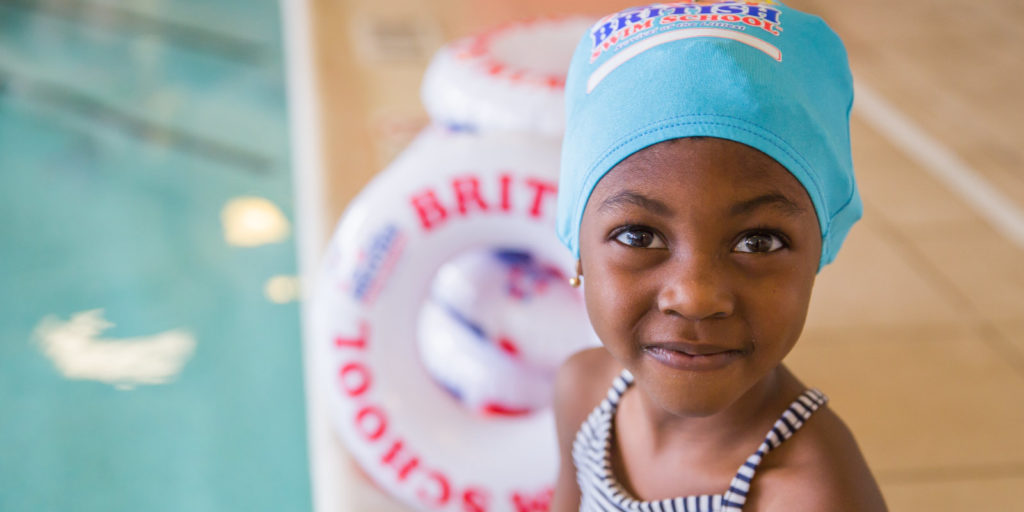British Swim School was mentioned in USA Today! Read the following article to learn more about how Karese Cain confronted stereotypes about race and swimming and started her own British Swim School location in South Florida!
USA TODAY NETWORK
Janine Zeitlin, The (Fort Myers, Fla.) News-Press
Not until her days at historically black Howard University did Karese Cain realize she was an anomaly in the swimming world. It didn’t bother her that she was the only black swimmer on her high school team, or that most of the athletes she competed against in college were white.
Indeed, the degree of the disparity didn’t fully register until years later.

“I never really thought of it as ‘I’m a black girl swimming in a predominantly white sport,’” says Cain, 33, co-owner of a growing British Swim School franchise in South Florida. “Maybe I’m naïve, but no one said, ‘Oh my gosh, she swims so well, and she’s black.’ Maybe my face said, ‘Don’t approach me about that.’”
The lingering stereotype that black people can’t or don’t swim well certainly didn’t occur to Cain as a child. She began competing at age 4 in her native Jamaica. She earned a swimming scholarship to the private Cardinal Gibbons High School in Fort Lauderdale after her family moved to Florida when she was 13.
Her younger sister also swam competitively. Both swam in Jamaica around the same time as Alia Atkinson, a Jamaican Olympian who in 2014 became the first black woman to claim a world swimming title.
In Florida’s diverse Broward County where Cain’s franchise is located, half of the 230 students in her two locations are black, Cain estimates.
“We didn’t have to recruit them,” she says. “They just came.”
Like Cain, many of her students have international ties. Cain’s mother, Lorna Cain, enrolled her in classes at age 2 in Jamaica.
“I didn’t learn to swim as a child because my parents weren’t that focused on those things, but I saw the importance” of swimming skills in an island nation. says Lorna Cain, 61. “We’re surrounded by so much water in Jamaica. Kids go and play, and they develop no fear.”

Fear of drowning (or lack of such a fear) is the strongest predictor of a person’s swimming ability, according to a 2010 study commissioned by the USA Swimming Foundation to look at why more minorities don’t swim.
Black people reported a much higher fear of drowning. And, nearly 70% of the survey’s black participants reported low or no swimming skills compared with 42% of white participants.
A shoulder injury thwarted the advance of Cain’s swimming career. After college, she returned to South Florida and became an instructor for British Swim School, which is headquartered in Fort Lauderdale and operates in 15 states at more than 100 pools, including some in gym chains like LA Fitness.
Cain and another British Swim School employee, Maybelline Yurco, teamed up last year to buy a franchise. The women run locations at gyms in Miramar and Hollywood and will be opening one in Pembroke Pines.
Although black parents are eager for their kids to learn to swim, Cain notices that black students are still less interested in competing. She hopes this will change as more elite role models emerge. In 2004, Martiza McClendon was the first black female swimmer to earn a spot on the U.S. Olympic team in 2004. American Cullen Jones won four medals in men’s swimming, including two golds, at the 2008 and 2012 Olympics.
At the Rio Olympics in 2016, Simone Manuel became the first African-American woman to win an individual swimming medal, gold in the 100-meter freestyle.
“It was a big thing, and even some of the African-American students in our program have come to me and said, ‘I want to swim like her, and I want to get a scholarship for swimming,’” Cain says. “It really motivated them. And I’m glad for that.”





